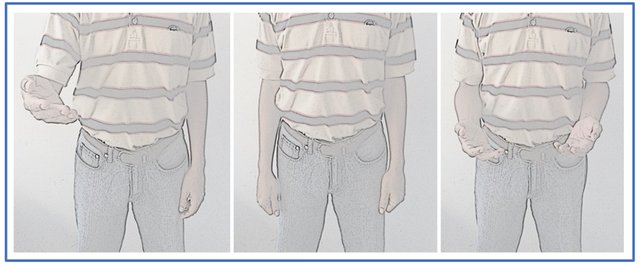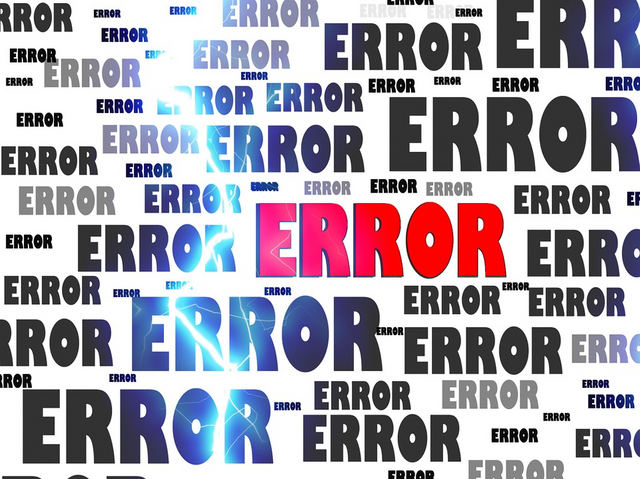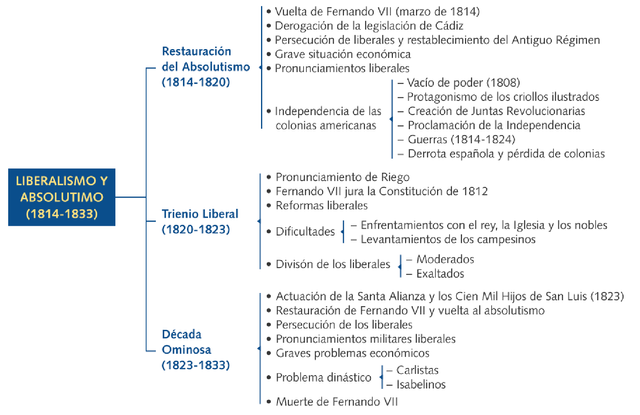All about Oratory [Course]
"Having knowledge but lacking the power to express it clearly is no better than never having any ideas at all"(Pericles, 450 BC)

In this new series, the main focus will be to describe the essential tips to master the art of Oratory.
Related words: Speech, Eloquence, Art; Oratory is the art of giving a speech with eloquence.
The purpose of oratory is to influence others, to convince our listeners with our words. Perhaps we get the mental image of a charismatic and eloquent salesman who's lexicon allows him to convince others that his product or service is the best, but the truth is that we are all "sellers". From a child who is exhibiting his mini project at school to a professional seeking for investors for his big venture.
Characteristics of a good Speaker:
- He has a well defined objective: selling, teaching, convincing, explaining, reasoning ...
- He expresses himself respecting the grammatical rules.
- He appropriately uses the gestures or mannerisms.
- He has total and absolute control of the content.
- He adapts to the public.
- He develops the speech in a logical and orderly manner.
Why should we study Oratory?
When our life in society begins and we must interact with other people, we gradually improve our communicating skills. As time passes and we advance in different stages of our lives, it becomes essential to have the ability to express ourselves clearly.
Back in our kindergarten or school days, the professors made us give many public speeches to explain mini projects. From that moment on, we will have to prepare and defend tons of academic work in high school and in college. If we think that it would stop when obtaining the professional title, we are totally wrong! While working, we must also communicate effectively, independently if we work in sales, services or in an industry we will often have to report to our management and explain Projects.
Therefore, if we want or need to improve our interaction with the public and get appropriate advice to convey our message properly, this blog series called "Oratory Course" will be very helpful.
Who is it aimed at?
In the first semester of the year 2017, the university where I work invited me to participate as part of the group of instructors and teachers for training the students for the presentation of their professional practices (internships) and the preparations of their thesis. The students of the ninth and tenth semester are organized attend several workshops. Three days are prepared, the first one of writing skills, the second one of oratory, and the last one for the elaboration of presentations or support material.
So, first of all, the content and the dynamics taught were designed for university students, so as to provide them with the necessary tools to fulfill the defense of their internships and grade work in a satisfactory way.
Now that the content will be developed by way of blogs, combined the experiences acquired throughout all the taught workshops, it will remain useful for university students and since it will be available to the general public, it will also be of benefit to any reader. The Oratory Course will adapt to the context of application both in the university and at the work level.
Vendors, Video-blog creators, managers, teachers, YouTubers, students, in short, anyone who wants to improve their way of communicating or transmitting their ideas will be able to take advantage of the agenda to be developed.
Proposed topics:
*Speaking well: Correct reading, proper modulation and use of pauses and emphasis on main ideas.
- Non-verbal communication: What our body says about us, analysis of the gestures, proper usage of our gaze.
- Adapting the vocabulary: Preparation of our lexicon.
- Projecting a good image: The care on our appearance and on our personal hygiene says a lot about us.
- Common mistakes in Oratory: Five aspects that we must avoid when giving a speech.
- Outlining the speech: phases, tips, and ideas to properly order our intended message.
- Audio and Video: Tools to complement our speeches.
- Exercises to improve our Oratory: Simple techniques that can enhance our capacity as speakers.
- No more nervousness, some techniques to be relaxed: Exercises to keep us calm before and during our oratory.
- Evaluating Oratory: Rubrica proposal to evaluate our capacity of oratory
- The Dark Side of oratory: Reflections on Ethics and Morality in the applications of oratory.
“Of the various instruments invented by man, the most amazing is the book; all others are extensions of his body ... Only the book is an extension of the imagination and memory”.
(Jorge Luis Borges)

First council to dominate the art of oratory …
Speak well
Words related to "speaking well": communicating correctly, adequately expressing, Make me understand, effective conversation, Correct pronunciation, to Explain, Manifest an opinion clearly.
Has it ever happened to you that listening to someone, you do not understand anything, you know he is speaking your same language, you hear the sounds that come out of your mouth, but the message it conveys you can not be understood. When this happens it is usually because the person who communicates does not know how to "speak well".
Speaking well is related to "diction", that is, the fit way to use words, Both in the writing and in the oral , when reading or speaking, you using correct pronunciation of each word.
Why is it important for us to have a good diction?

- To correctly transmit a message when speaking or reading.
- To eradicate doubts or lack of understanding of the message.
- Transmit dignity and respect to the message transmitted.
- To promote respect for the correct use of the Castilian language.
- Who speaks with good diction projects a "professional" image.
- To improve in the selection of words by shaping and expressing the main ideas of a message.
- Keep the listener attentive to the message and not the "errors" when transmitting the message.
Common mistakes:
- Cut words, this habit very common in chat and text messages, which serves to "gain space", is to translated into spoken language, producing linguistic phenomena such as: "thx" instead of "thanks", "cgr" instead of "Congratulations ".
- Change one letter for another, we are all taught in school and in our homes to correctly pronounce each syllable and each word, but nobody spends time teaching us to identify the vices when pronouncing, until it is too late, each region, each country, has its own idioms that attempt good diction, example: Change the "L" for the "R", in the eastern region of Venezuela in everyday spoken language is common to hear: "Amol"(love), "Menol(Under age) ”; This phenomenon is repeated in all countries and each region proposes its own mistakes that are formed of mode "unconscious" and to misfortune, it is inherited from generation to generation.
- Inventing words (barbarisms), occurs when we try to adjust some expressions of other languages to castilian or the deformation or incorrect conjugation of some existing word.
- Without recognise of the accents, in castilian, as in other languages that use the Latin alphabet, not all the words carry tilde, with the frequent use of the language it is learned to give the adequate accent, and with the study of the language one learns to identify the words acute, deep and proparoxytones, what will allow to pronounce it correctly, giving him the intonation in the exact syllable in spite of not taking tilde.
The correct reading:
Maybe you think you do not need to read well to expose clearly and effectively, which is false:
- 1st The correct reading is a consequence of continuous reading habits, there are no shortcuts, practicing daily either aloud or mentally, we will be able to read fluidtly.
- 2nd. With reading we enrich our vocabulary, while more we read and select the material to read, the greater the number of words we can use to communicate.
- 3rd In our facets as "Speakers" or "Exhibitors" we will always have the opportunity to read, be it the support material to be used, announcements, names of the assistants, in end, Read enriches our way of speaking, and when speaking in public we will always have the opportunity to read..
Note: The proper use of punctuation marks, allows us to read correctly and convey the idea as the writer has written it most of these symbols indicate pauses in the reading, these pauses allow to he and the listener (s) time to process the message, therefore, I invite you to repass the meaning and the pause time of each of these signs.
Appropriate modulation:
It is the ability that we all have to vary the voice, in volume, rhythm and tone.
- Volume: is the intensity with which we project our voice, some by nature have a high power when speaking, while others have to strive to be heard, if in the room or auditorium where we speak there is a microphone and sound system this can help if we have a weak voice, but if we lack equipment to amplify our voice then we must learn to strengthen our vocal cords and the respiratory system to project our voice with more power, later in the Audio and Sound post we will give some advice for this.
- Rhythm: refers to the speed of speaking, each of us has a natural speed to expresase, that identifies us, if in front of an public we force the speed, the message come out feigned, without conviction, we will be acting without naturalness, however, we can accelerate or decelerate depending on what we want to say, for example: if we need to mention a list of objects or actions we must do it at a rapid pace, but if we are explaining a main idea, an important objective or repass an aspect of the speech, we must express it at a slower pace to guarantee that it is fixed in the minds of listeners.
- Tone: is related to the capacity we all have to transmit emotions when speaking, when someone pronounce two or three words we can already know what emotional condition he is in (nervous, bored, tired, angry, cheerful, convinced, etc); lack of preparation is one of the main reasons that causes nervousness and lack of conviction in discourser, as consequence the public is losing interest in the subject, on the contrary, even if it is our first time before an audience, the good preparation, readings previous, diction practices, will allow us to project the audience trust and mastery of the subject.
Use of pause and emphasis on main ideas:
In spoken language, pauses are very important, going at full speed, hasty over words and the ideas will cause confusion in our listeners.
Speaking without pauses is the same as reading a text that does not have any punctuation marks, making it impossible to distinguish or order ideas, also pauses allow time for listeners to process information and prepare to relate it to the next idea.
The emphasis we to gain when choose the key word or phrase in our message, raises the volume of the voice and makes a long pause after saying it.
“Speak well "is not a modern miracle, does not require any high IQ, anyone can develop this competence, but yes, there are no shortcuts, you must be constant, practicing reading and respecting the rules of grammar.
Your body says more about you than you think...

Non verbal communication
The gestures and the mannerisms are the movements that we make with our body to complement or affirm the discourse, it is expected that a healthy person with a normal motor capacity can express itself with eloquence in the way of speaking and to reinforce their attitude with the right movements.
Analysis of the mannerisms

Hands behind or hiding
This position is inadequate, hiding hands will transmit to your audience that you also hide something, in addition to projecting insecurity.
Similar when we bend the arms, this position blocks any connection we want to have with people in the auditorium.
Hands in the pockets
Keeping your hands in your pockets is a bad idea, it's a symptom of nervousness, that position provokes other series of uncomfortable positions; such as a fluttering effect, when moving the arms back and forth. On the other hand, it can also indicate arrogance and
indifference, if we add to that position an active gesture on the face we will be in the presence of a person who projects indifference.
Finger pointing
The use of hands is the most complicated for the speaker, this part of our body can even betray us unconsciously, making involuntary gestures, playing with objects, or in the worst case constantly making the same movement, again and again distracting the public.
If we must point out something, the wrong way to do it would be pointing with the finger, since it would reflect a direct attack on our interlocutor.
Proper use of the hands

Undoubtedly the hands are the biggest challenge of a speaker, but with practice, you can be aware of the involuntary movements and avoiding inappropriate gestures.
Remember that whoever has the opportunity to address a group of people, must also assume moral responsibility. There are signs that can send a double message or be misinterpreted, diverting the attention of the message, losing the goal of what you want transmitted.
Therefore, to not destroy our discourse, we must give good use to our hands and arms, learn gestures and postures that reaffirm the message instead of being a distractor factor, for example:
- Open hands, the adequate way to point objects or people.
- The loose arms, it is not necessary that we always use the arms and hands, on occasion it will be enough to have them relaxed, especially if you have doubts about which gesture to use, it is better to give the impression of being relaxed (keeping your arms loose) than doing pirouettes with the hands. Of course, it would be inappropriate to present the whole speech in this posture because it would detract enthusiasm for your participation.
- Symmetry with the hands, keeping them raised together and in the same position transmits the idea of control and you are comfortable and confident with the message
Attention to audience reactions.

The correct thing is to always observe those who listen to us, to learn, out of respect and above all, we want our listeners to perceive that we are interested in them.
In auditoriums or smaller events, it is possible to watch attentively each one of those that are present, which allows to break the ice and to create familiarity between the listeners and the speaker.
When there are many people, it is recommended to choose several people from the audience and as the topic progresses, little by little, interacting with the selected people.
Keeping eye contact with the public will allow us to identify whether they are paying attention to the message, what kind of reaction they have to the message (approval or rejection) and most importantly, by seeing the moment integration with them is achieved.
It must not be too long, and remember that we must be cautious, as staring or for a long time at someone else can be considered offensive, whereas if we look at nobody we project indifference.
How do we improve the mannerisms?
- Although everyone is free to choose their gestures and movements, it is recommended that, for academic and formal events, the posture and movements show seriousness and prudence.
- observe other people who have good oration, who are recognized for correctly using their hands and looking, and emulate their mannerisms until we do them in our own way.
*Use tools such as video cameras, which will record our practice session, then identify and evaluate which gestures and postures are appropriate and which not, then discard the inappropriate and reinforce the positive. - Request the help of someone, to constructively criticize our mannerisms. The opinion of a third party can help make our self-evaluation more sincere.
The limits of my language means the limits of my world. (Ludwig Wittgenstein)

Adapting the vocabulary: the preparation of our lexicon.
According to Oxford English Dictionary, the English language has more than seven hundred thousand words, including ancient words that are no longer in use. However, English speakers use about eight hundred words for everyday communication. The rest of the English words are not in common use or belong to a specific context exclusively, for example, the medical terms or the technical language of engineering studies.
Oratory abilities can come in handy in a large group of situations: sometimes we have to make a speech in front of an audience, sometimes we have to defend an academic thesis or give a class. In all those cases the vocabulary we use has a strong impact on the quality of our speech.
Formal Vs informal

Neither the opportunities in which we have to talk to an audience are planned, nor the listeners always have the same characteristics.
Our speech can be considered "informal" if we have to make a speech for an unplanned event, it also happens when the organization of an event isn't full of protocol. If that's the case, the speaker would dress as he or she considers appropriate for the occasion. Also, the language that the speaker should use could include these techniques: speak familiarly with your audience, make funny jokes, use colloquial expressions... In other words, when speaking in an informal event we should communicate with a simpler language. It is not necessary to include specialized vocabulary, exact technicalities or social formalities.
The formality of an event usually depends on its protocol strictness. For example, the defense of an academic thesis or a project presentation for a company. Those are cases that require "formality" in the dressing style and speech. Although you can laugh and manifest a happy attitude, jokes are not welcome when it comes to formal presentations, neither are rude manners nor burlesque tone. The speaker must maintain composure and use a specialized vocabulary according to the speech subject.
The characteristic of the audience will determine if the speaker is free to use a simpler language or, on the other hand, have to adjust his lexicon according to the speech theme.
Which type of audience is listening you?

Is your audience composed of specialists on the topic you will speak about? Then the vocabulary you should use has to be specialized as well. In the case of an academic thesis defense, the public who listen is an evaluating jury that has great mastery on the main topic of the speech, in fact, they probably know more about it than the speaker itself; In other words, if a workshop is being given or is part of a series of lectures, the public will be attentive to learn new terms, perhaps some of those present already have prior knowledge of the topic. That's why the speaker always have to show respect for its listeners by using formal language, including the technicalities of the main theme.
Are your audience newbies on the topic to be discussed?Is your presentation made for people who want a general knowledge of the subject to be presented? If so, we should use a simpler language, avoiding the excess technicalities. In this way, the public will easily process the new concepts because the information will be presented simple and clean, without unknown words that require an extra effort of understanding.
Using simple language that can be easily understandable for anyone will reassure your audience. It will prevent them from suffering mental dullness while listening to you. However, it also depends on how much time you have to complete your speech. The use of complex concepts will come in handy when you need to save some minutes.

How to increase your vocabulary?
There are no shortcuts, no tricks and no quick way to increase Your lexicon. There is just one solution only: reading. You have to read about the topics you are interested in on a daily basis. Read more often the work of famous writers and researchers, read magazines, newspapers, read about what's happening, what's new, read articles on all kind of topics, as many as possible, even if you are not naturally interested in it.
Practice by finding the synonyms and antonyms of different words. Think about a word and try to find all the words that have the same meaning. Then, find all the words that mean the opposite. Do this every day and you will create a bank of words that will allow you to speak without repeating the same words again and again.
Surround yourself with people who are also striving to increase their lexicon.
Play crosswords or scrabble.
When reading, use a highlighter to mark the words that you would like to start using from now on.
Write your ideas trying not to repeat words.
Take the dust out of your dictionary and start using it.
Use the "word of the day" service that most of the online dictionaries offer to their subscribers.
Summary:
- You must choose your vocabulary carefully based on your immediate context, and the strictness of the event formality you are attending to.
- In formal events (such as academics) the use of specialized language is the more appropriate.
- Daily reading is the main source of a good, rich vocabulary.
Warning 😱:
Take a moment to think about this quote
The excessive richness of vocabulary often conceals poverty of thought.
(Enrique Larreta)
Do not be around loose and poorly dressed, Sancho, a disordered outfit reflects a mismatched soul. Miguel de Cervantes (1547-1616)

It's not about being superficial, it's about reflecting our security with a good looking.
On one occasion, I signed up to attend an "ISO 9000" workshop. It was very important topic to master those concepts in the workplace back in 2007. Receiving that instruction maked me very excited, we were all in a classroom, large, with tables and chairs. The classroom were equipped with projectors, sound equipment and acrylic blackboard. Everithing was going OK till the instructor arrived, my first impression of him was a very bad one. He looks like a beggar: worn dress pants, disheveled, he had this huge dirty jacket and also carried a briefcase, a package, a plastic bag and a folder full of papers. My disappointment was immense, I just wanted to left the room, demand the refunding of my money and walk away.
However, he began to introduce himself. He had a very confident way of speaking so I'd decided to wait a few minutes more. His fluency in conversation and mastery of the subject was so good that 30 minutes later I was unable to remember how unpleasant he looked. That experience taught me how important is to create a balance between the oratory abilities and a good appearance. That equilibrium makes us consistent with the context in which we develop.
If we are going to dictate a workshop, make an exhibition or a project presentation, we have to direct the attention to the message to be conveyed. Our image can play against our goal, drawing the attention to our outfit (whether due to lack of personal care or excess of it) causing unnecessary distraction for listeners. Here are some tips to avoid this situation:
Formal or Informal

It will depend on the type of event we are attending to. A great academic event isn't the same than subject explanation to the classroom. A workshop dictation in an open place is far different from the same workshop but in a closed place with air conditioning. Every circumstance defines the type of attire to be used and the degree of formality of the situation.
An academic thesis presentation is a formal event. In this case, it is expected that your wear formal outfit: full suit in case of gentlemen; a dress or dress pants and an elegant shirt in case of ladies.
There is no rules to established the type of clothing you must wear. Use your logic instead. If you analyze what type of event your are attending to (formal or informal) you will know what clothing style would be appropriate for it.
According to gender

Which type of clothing is masculine or feminine depends of the local cultural. There are countries where men wear skirts and it is accepted. In Scotland for example people does not get distracted, anoyed or surprised when seeing a man wearing a skirt.
In some other locations of the world where it is not common for women to wear pants. Doing it implies beeing stares by everyone.
In a formal event, such as a academic thesis presentation, the message of our speech should catch the whole atention of our espectators. If we decide to wear a piece of clothing that culturally isn't expected for our gender to use, we will provoke a distracting factor. The jury and the public will not be attentive to the development of our speech.
Sexy, tight, revealing clothes are not appropriate either. It breaks the protocol compleatly. Nobody would be attentive to the message to be transmitted if the speaker is dressed like that during an academic context.
Personal hygiene

Imagine you are in a small place, a closed one with almost no ventilation. The person who are speaking to you have halitosisl or any other disgusting corporal smell. It is a matter of time for you to start feelign unconfortable. Personal hygiene plays a fundamental role in the social life, it is a sign of self-estim and also it shows respect for the people aroud you.
Public speakers must ensure they have a pretty good hygiene, their clothes must be neat. There is no need for you to have expensive clothes but to be properly washed and ironed enough. Our body must be clean too: properly bathed, teeth brushed, etc. Hygiene habits gives pleasent version of ourselves to the people we meet with. The surelly will be gratefull for it.
If for some reason you keep having bad odors despite you hygiene routines is very likely you need a doctor.
The simplicity
If you are abled to buy expensive clothes and luxurious accessories, then do it. But remember, a good speaker never try direct the attention to the clothes but to the speech. That's why with a hygiene routine and ironed clothes we would be well presentable to convey any message to any public.
No soldier dies in an announced war except for careless soldiers.

Common errors in oratory:
Five things to avoid during a speech.
1. Lack of preparation
Lack of preparation is the most common error of speakers, it is also brings the most negative consequences; a good preparation give you don’t do it, these kind of things would happen:
Nervousness: you will probably project your insecurity in your speech and while moving; It is true that we will be always kind of nervous, but if we have enough practice, we will increase our self-confidence and decrease our fears.
Incoherence in the message: the previous practice of the speech, the adequate selection of the words we will use and the establishment of the ideas’ order are crucial factors to success. If we do not set those things before hand, improvisation will ruin our main message. Improvisation, most of times, reflect the opposite of professionalism.
Control of time: a good preparation takes into account the time available to discuss a topic. If you do not get prepared before the speech is very likely you would last too long when speaking. This is a very important issue, because most of important events have a time set that must be respected.
Sound test: the previous preparation must include the revision of the sound system.
2. Non interesting facts
When developing a topic that we want to share with the audience, we always have to take into account the applicability of our arguments. Why is the topic so important? How will the listeners get a benefit of it? How the content of my speech can be applied into real life?
If the speech is only informative, it will not have a significant impact on the listeners. They will perceive it as another discourse, irelevant, or maybe as something that they have heard before.
3. Outdated data
This an important error when it comes to a thesis defense in most of the Universities and academic institutions. They demand their students to have updated data. You have to be careful with this to fulfill the academic requirement established by the institution.
It is true that not all areas of knowledge should require at least five years updated database, but when including a statistical data this consideration is very important. The jury will probably compare it with statistical data of other years.
4. Lack of interaction with the public.
The speech interactivity does not necessarily include the direct participation of the public, although it led your event to be more attractive and dynamic. Interviews and question and answer sessions are a good example.
If the technical part of the event is related with the participation of the listeners, the speaker can include a passive interaction, for example, rhetorical questions. Also, he can make some questions to its public before the development of the speech so he can used the answers later as a part of his arguments.
5. Overact instead of being yourself
We all want to show our best attitude in front of a microphone, surprising others with our overflowing charisma and joy, however it is not an instant skill. There are event directors who pressure novice speakers to have excess of energy while presentation when it is not something natural of them. The result is an overacting show, a farce. It effectively manages to draw attention to the public, but not because the message but for the sad and ridiculous role the speaker is doing at microphone.
So please, be yourself always. Avoid using a "mask", do not create a personality that does not belong to you. If someone has said that you lack charisma when speaking, try and practice with the different tones of your voice to find the indicated one that reflects security. Remember, the public loves a natural and relaxed speaker.

Speech planning:
In the last post, we mentioned that the first error in oratory is the lack of preparation, overconfidence. Some think that they can manage to transmit their speech without the need of previous preparation, but what exactly does this previous preparation mean?
Not only is it enough to be aware of all the details of the event and the resources you need for setting up your speech, but the previous preparation also begins with many important steps, the development of the theme, the organization of ideas. Without these steps everything else it would not make sense.
Before you start you should consider the objectives of your speech and the time spawn you want to dictate it. The objectives will determine what information to include and what strategy to use, while the time limit gives you an idea about how much information to give and what strategy would be appropriate according to the chosen time spawn.
| Objectives | Topics | Strategy | Resources | Time |
|---|---|---|---|---|
| Objetive 1 | Topic 1 | Strategy 1 | Resources | X minutes |
| Objetive 1 | SubtTopic 1 | Strategy 2 | Resources | X minutes |
| Objetive 2 | Topic 2 | Strategy 3 | Resources | X minutes |
| Objetive 2 | SubTopic 2 | Strategy 4 | Resources | X minutes |
| Objetive 3 | Topic 3 | Strategy 5 | Resources | X minutes |
| Objetive 3 | SubtTopic 3 | Strategy 6 | Resources | X minutes |
- The objectives should be written in the infinitive, and you should choose very well what verb to use. The verb should clearly indicate the action you want to perform. In addition to each objective's name, you should include the purpose of it, this purpose will allow the selection of the strategy to use.
- The themes and sub-themes will arise from the objectives since the content is inherent to them.
- The strategies are the different techniques or methods that we can use during the speech, these can be static or dynamic, with or without the participation of the public. It must be verified that the selected strategy achieves the purpose of the stated objective.
- Under the "resources" label, you should describe everything necessary to develop the selected strategies.
- Each objective must be assigned a corresponding time, this will allow better control and adequate distribution of time to meet each of the objectives.
This type of planning applied to the development of speeches is the most complex of all the methods to outline the ideas, the only disadvantage is that it takes some time to elaborate it. But its utility lies in the multiple advantages i.e. it is detailed, it relates everything, each step is analyzed, allows multiple options to adapt it to different circumstances, it also allows to evaluate the result to improve the next presentation.
Way of sketching ideas
Scheme:

The scheme allows you to break down the main ideas, each main idea can be subdivided into secondary ideas, how many you need to add to complete the information.
Mind Mapping

Mind Mapping map allows to break down the ideas into images and symbols
Text

Include the content of the speech fully, word by word, or partially indicating extracts of the ideas that the lecturer will use.



Me encanto esta publicacion!!
Sin duda alguna, es un tema que me sirve mucho aprender, asique gracias por hacerlo tan claro! :)
Congrats on being chosen as one of the top picks of the week! Thank you for your contributions to Writing & Reviews!
How does public speaking begin? That's right - from the plan, the concept of speech. Any professional speaker knows that you need to start preparing for a speech not in a day, or even in a week. Check out the recommendations at https://www.argument-studio.ru/how-to-create-and-present-a-speech in order to learn how to speak in public and become a confident speaker.